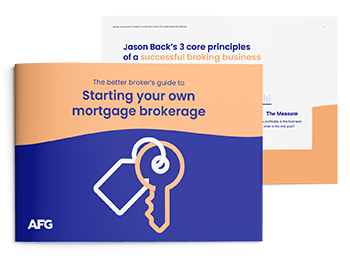The majority of Australia’s SMEs are family businesses, but very few seek specialist advice.
As the saying goes, you can have a successful family or a successful business, but you can’t have both. So it’s a true optimist, then, who decides to run a family business. It’s estimated more than 70 percent of companies in Australia are family businesses, yet very few seek specialised advice on how they should structure and run such a potentially tricky enterprise.
Believing you can run a family operation as you would any other is a mistake, according to Family Business Australia’s WA state manager Lorraine Willis. “Ideally business is the business and family is the family, but in reality, you can’t really separate them out,” Willis said. But it was important to draw boundaries, which is where Family Business Australia (FBA) aims to help.
FBA advises businesses on structures to help navigate the unique demands and conflicts that often arise when parents, siblings and extended family work alongside each other. This could involve drawing up a family charter to lay out the core values of both the business and the family, and establish clear boundaries between both. Discussions about business matters should not take place during family social events and vice versa. Willis said some families even held retreats – much like corporate seminars – to talk through these issues.
The process not only helped businesses run more smoothly, it often helped family relations too. “Professionalising how you run your family business means conducting yourself with a professionalism between your family members as well,” Willis said. “So it does have a positive impact on the families as well because it’s like a guidebook to steer how you conduct yourself and where the boundaries are.” As family enterprises roll into second and third generations, dealing with an extended family business network of siblings and cousins can become problematic without formal structures. “That’s why people come to us,” Willis says. “They know they can’t grow and professionalise their family business just by doing the normal business stuff when there are family members involved.”
Family Business Australia offers a range of education courses (covering topics such as succession planning and family governance), confidential forums (where family business owners share advice and problems) and a pool of accredited advisors (from accountants to counsellors). Willis was often surprised how few family businesses sought specialised advice when many disputes that impacted on companies were rooted in personal, rather than professional, disagreements. This was particularly true in second-generation enterprises when siblings took the reins from parents. And the fact family members were involved in the business often made HR issues harder, rather than easier to broach and resolve problems.
For example, most business owners would know how to manage a staff member with addiction or mental health issues, Willis said. “But if that person happens to be your wife or your son – it’s not quite so easy. It may not seem so open for discussion.” The strength of FBA, Willis said, was it brought together disparate family business owners who were often surprised to find they shared similar problems and were able to offer each other valuable advice. “It’s the people who are part of the organisation that give it its strength,” Willis said.
On more than one occasion members had reported savings thousands of dollars because of advice shared by other family business owners who had been through similar experiences. Another common pressure point for family businesses covered at FBA educational and forum events was succession or transition planning. “It’s not just: ‘One day son, this will all be yours’,” Willis laughed. “Firstly, it’s, ‘Are you interested son?’ And the son may not be, but the daughter is.”
Willis said leadership transition should be staged over several years and discussed well in advance, so all involved understood future intentions. Ideally, outgoing leaders would retain an advisory or mentoring role.
Top five conflict points for family businesses
- Future visions goals and strategy.
- Balancing family and business needs.
- Lack of family communication.
- Succession/transition-related issues.
- Financial stress.
Source: KPMG Australia Family Business Survey 2015









